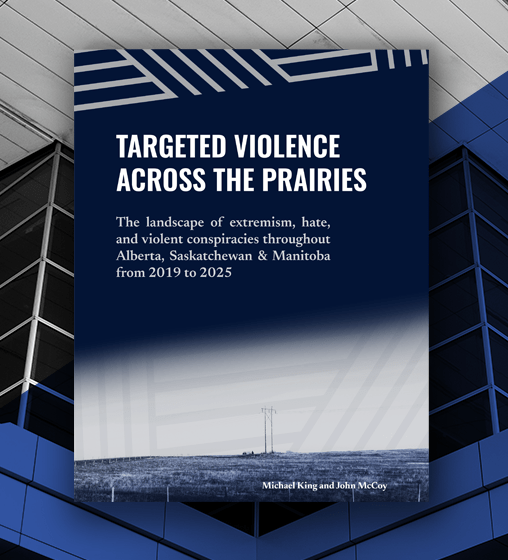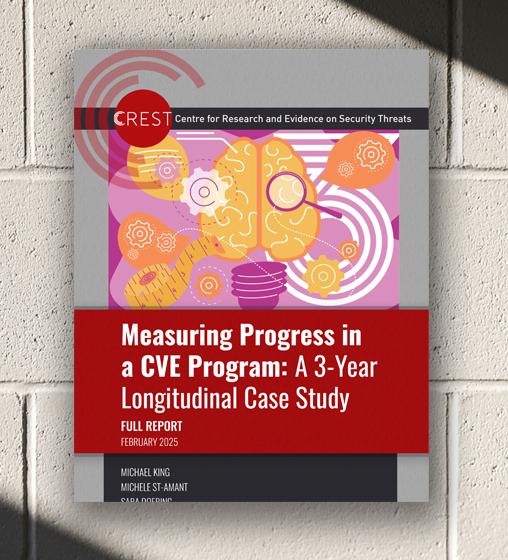In this article from Dylan Short in Calgary Herald, findings from our latest publication, Hate, Extremism, & Terrorism in Alberta, Canada, & Beyond.
Original Article
Published by Dylan Short in the Calgary Herald on September 3, 2022
A new report on hate and extremism in Alberta and Canada shows there has been a trend for people prone to radical ideas acting alone rather than with a group.
The report, released this week by the Organization for the Prevention of Violence, showed that, over the past three years, groups that were once prevalent in Alberta, such as the Soldiers of Odin and the Three Percenters, who were prone to ideological violence, have largely disbanded or become disorganized. In their place, much of the extremism in the province and throughout North America has moved towards people acting alone.
“This has spooked people,” said King. “People are less interested in being in these groups.”
King said, in turn, there has been an increase in “salad bar” extremism, where individuals will pick and choose radical ideas that they associate with from various ideologies and groups.
“People picking and choosing stuff from neo-Nazi ideology, picking elements of it, but not everything. Then also picking stuff from the sovereign citizens movement or the freemen on the land movement, but not everything,” said King. “They don’t go super extreme, but they do think some parts of that are applicable and then they also espouse some of the theories of QAnon and they put that all together and then they have their own ideology.”
King said the move to a more individualistic brand of ideological extremism could make people prone to violence more difficult to detect as they wouldn’t be as easily identifiable. However, he said lone actors would have a more difficult time causing widespread, large-scale violence.
He said that while there are a lot of experts who are focused on one type of extreme ideology, such as experts on ISIS, moving forward people will have to be able to spot a larger number of ideologies.
John McCoy, executive director of OPV, said there has also been a rise in anti-government and anti-authority movements.
“We’ve seen kind of a lot of anti-authority, anti-government sentiments, and in some cases, you know, moving into the realm of promotion of violence or violent extremism,” said McCoy. “There’s a lot of anger that drives towards people in government but also drives towards the media.”
He said the rise of people who are acting alone and buying into conspiracy theories is making it difficult for people who are combating extremism to pick out who is prone to violence. Pointing to the Nova Scotia shootings where a gunman killed 22 people, the brothers in Saanich, B.C., who were killed during a bank robbery and members of the Coutts blockade who were found with weapons, McCoy said a lot of the ideological violence in Canada has not been group-affiliated but has had anti-authority sentiments attached to it.
“There’s no group affiliation,” said McCoy. “It’s sort of like a loose network of like-minded individuals with grievances being particularly important, and grievances towards government particularly important.”
King said there has also been an identified rise in people suffering from mental-health issues becoming prone to radicalization. He said moving forward, there will have to be conversations and discussions around whether a psychosocial intervention is needed to prevent violence or if a security or law enforcement approach is best suited to intervene.
“They need to consider psychosocial responses to some of these cases. Not all of these cases fit that bill, but the government needs to increasingly consider that as a viable counterterrorism tool,” said King.
Dylan Short. “Report shows extremism becoming individualized as organized groups fall out of favour in Alberta” Calgary Herald, 3 September 2022



